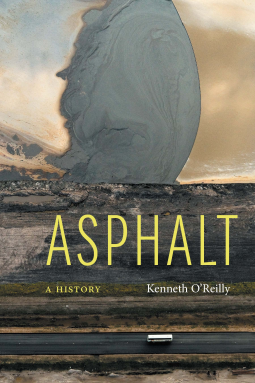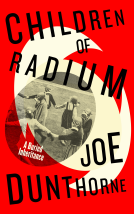
Asphalt
A History
by Kenneth O'Reilly
This title was previously available on NetGalley and is now archived.
Send NetGalley books directly to your Kindle or Kindle app
1
To read on a Kindle or Kindle app, please add kindle@netgalley.com as an approved email address to receive files in your Amazon account. Click here for step-by-step instructions.
2
Also find your Kindle email address within your Amazon account, and enter it here.
Pub Date Jul 01 2021 | Archive Date Jul 01 2021
Talking about this book? Use #Asphalt #NetGalley. More hashtag tips!
Description
Humanity has used asphalt for thousands of years. This humble hydrocarbon may have glued the first arrowhead to the first shaft, but the changes wrought by this material are most dramatic since its emergence as pavement. Since the 1920s the automobile and blacktop have allowed unprecedented numbers of Americans to experience the beauty of their continent from the Adirondacks to the Rockies and beyond, to Big Sur and the Pacific Coast Highway. Blacktop roads, runways, and parking lots constitute the central arteries of our environment, creating a distinct “political territory” and a “political economy of velocity.”
In Asphalt: A History Kenneth O’Reilly provides a history of this everyday substance. By tracing the history of asphalt—in both its natural and processed forms—from ancient times to the present, O’Reilly sets out to identify its importance within various contexts of human society and culture. Although O’Reilly argues that asphalt creates our environment, he believes it also eventually threatens it. Looking at its role in economics, politics, and global warming, O’Reilly explores asphalt’s contribution to the history, and future, of America and the world.
Advance Praise
“It turns out that the story of asphalt is closely linked to the story of modernity—the smooth ride of our cars across the pavement ties into everything from the climate crisis to the racism inherent in tearing up our central cities for highways. A fascinating story that will reshape your sense of what binds the world together.”—Bill McKibben, author of Falter: Has the Human Game Begun to Play Itself Out?
“Kenneth O’Reilly’s wide-ranging story of seduction and threat is rich in iridescent detail and full of surprising twists.”—Graeme Wynn, past president of the American Society for Environmental History
“Both a blessing and a curse, the progenitor of peace and the facilitator of violence, asphalt must be considered central to our understanding of modern history, and Kenneth O’Reilly convincingly explains why.”—Darren Dochuk, author of Anointed with Oil: How Christianity and Crude Made Modern America
“As the best histories do, Asphalt uses the past to change our view of the present and, hopefully, the possibilities for our future. Read this book, step outside, and see our world anew.”—Paul Bogard, author of The Ground Beneath Us
Available Editions
| EDITION | Other Format |
| ISBN | 9781496222077 |
| PRICE | $29.95 (USD) |
| PAGES | 344 |
Featured Reviews
Fact Gusher. This is one of those history/ anthropology books that gives a LOT of facts very rapidly, without any real critical examination of the central thesis. For a book showing *how* asphalt has been used throughout human history, it is quite good - O'Reilly shows from the earliest human records that we have been using asphalt pretty much since we've been using anything else, including its critical role in Egyptian mummification and even Noah's Ark. For a book trying to make a case of *why* asphalt has been used so extensively... again, it never really examines the central thesis or really makes any kind of solid case here. Which is why I had to deduct a star. Indeed, many of the areas O'Reilly claims that asphalt was a driving factor can be more easily - and completely - explained with factors other than this particular material. Without negating that this particular tool was indeed useful and in at least some cases genuinely necessary for the execution of the events as history records them happening. Still, a truly fascinating read showing the far longer history and much more varied uses of this substance that many modern readers hardly give a second thought. Very much recommended.
 Reviewer 68310
Reviewer 68310
There are a lot of facts in here, so many facts and I learned a ton! I was, however, kind of lost on the thesis-clearly a lot of research was done but to what end? I fear something critical was buried in these facts. Maybe it's because I also think I missed a section where there was disambiguation over what asphalt specifically is or the various things asphalt can be (which would be useful for Americans as the book definitely uses mostly Britishisms to refer to things) which I know like, oh that's what the book is about but some summary or synthesis would've prepared me better
 Mandy J, Reviewer
Mandy J, Reviewer
Well, who knew asphalt was so interesting? Not me, for sure. Nor did I realise how integral it has been to building and developing our modern society, as well as causing untold damage to our environment. Nor did I have any idea of its origin or history and the multifarious ways in which it has been used. And now I do, thanks to this fascinating and well-researched book, which I found unexpectedly compelling – although I admit to finding it rather too technical for my unscientific brain on occasion. A thought-provoking and illuminating read.














